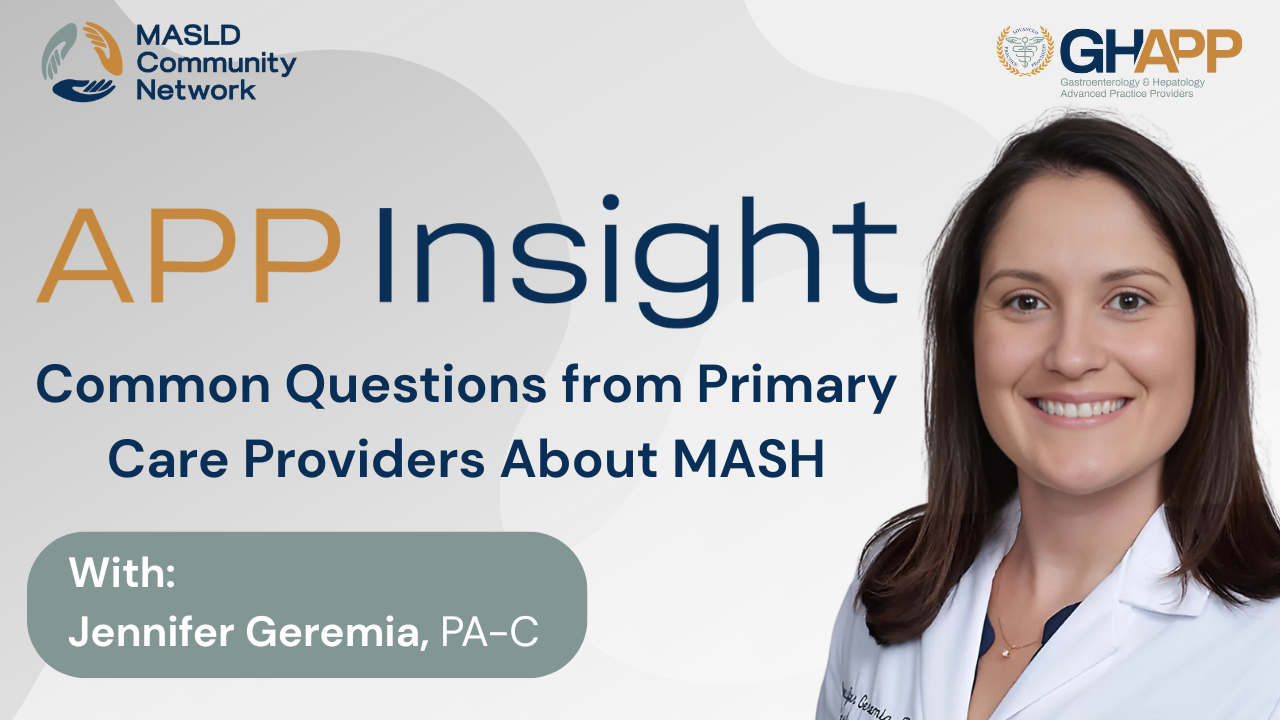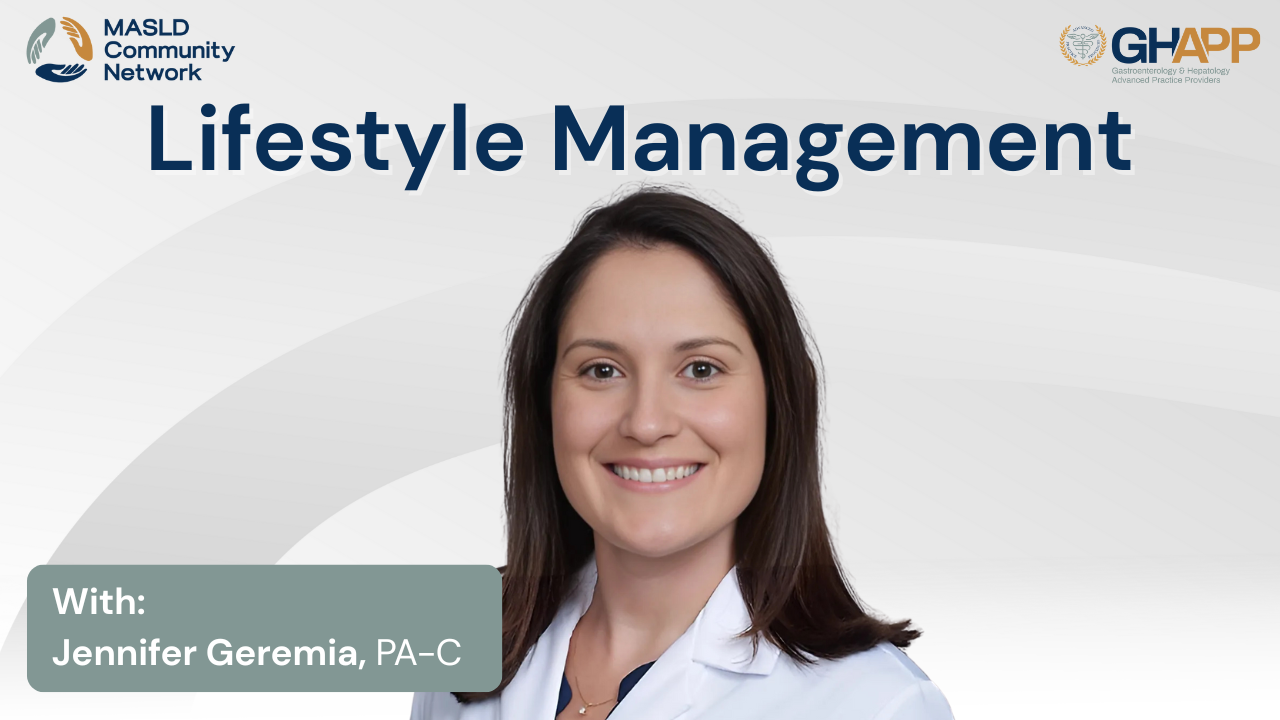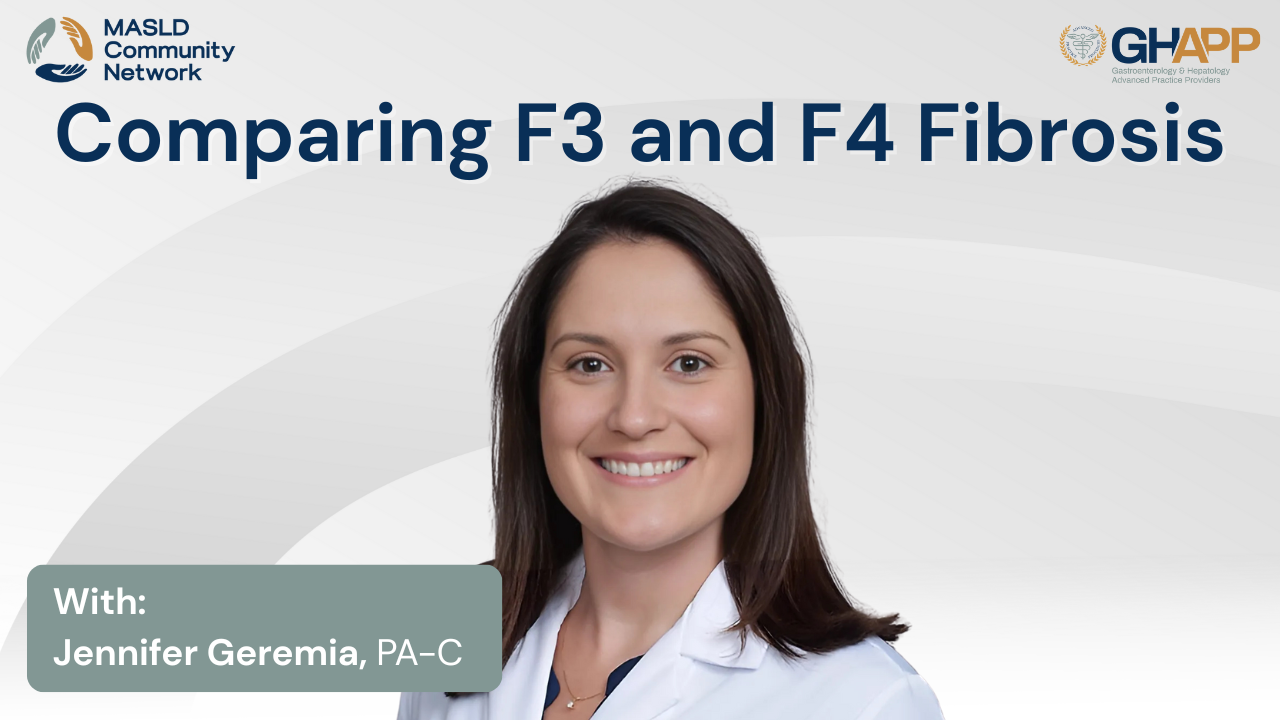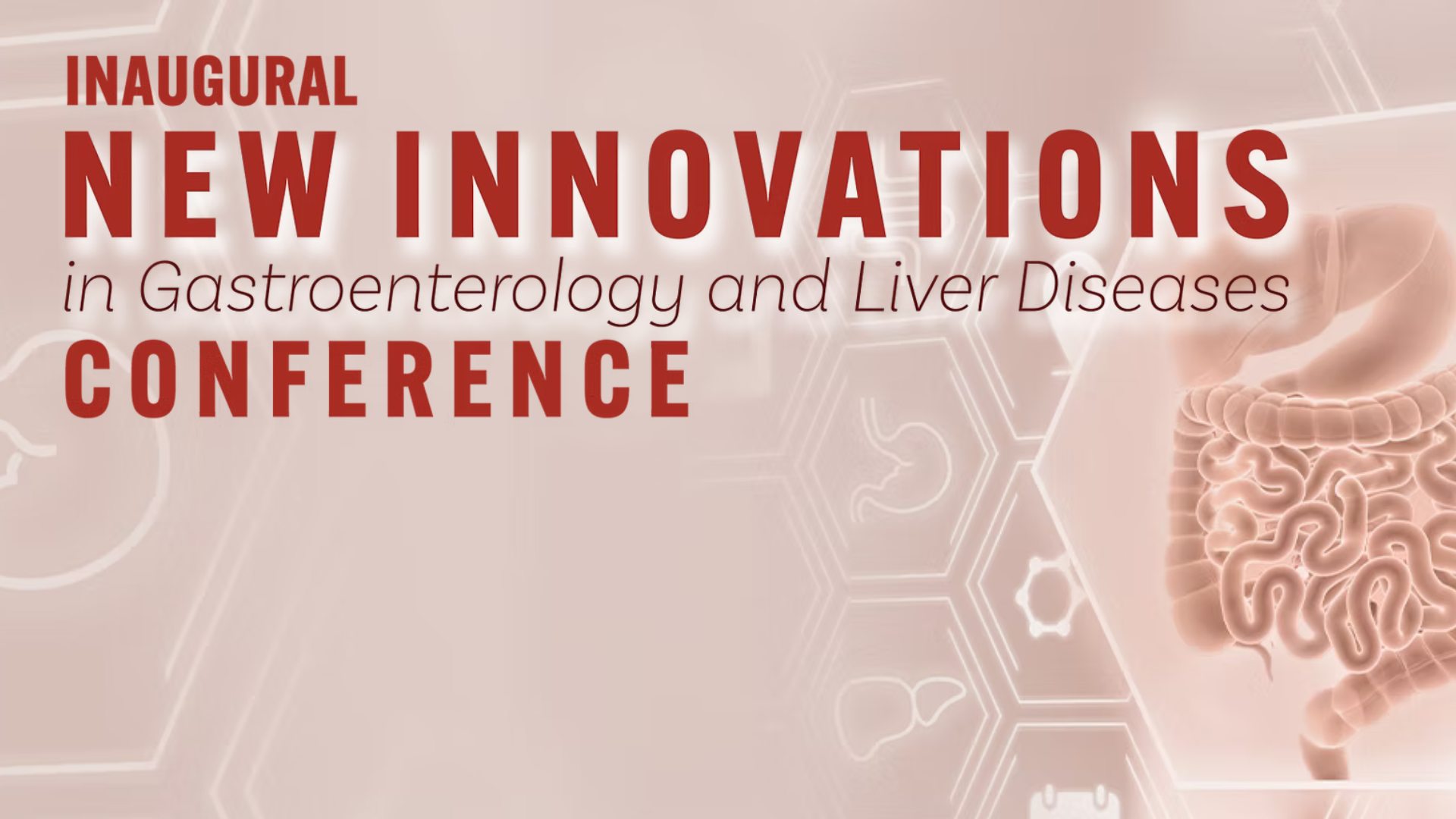
Jennifer Geremia
MPAS, PA-C
Location : Cranston, RI, USA
BIO
Jennifer Geremia, MPAS, PA-C, is a practicing Physician Assistant in outpatient Gastroenterology at Brigham and Women's Hospital in Boston. With GI experience for 15 years including community GI care in RI and currently tertiary care. In addition to clinical practice she enjoys educating both her peers and future PAs. Jennifer currently teaches at UNE, MCPHS and MGH PA programs. She is also on the Education committee and faculty for GHAPP and is actively working on the AGA APP task force as well as an APP contributor to ASGE .
MASLD-MASH Content Featuring Jennifer

Clinical Deep Dive: Unlocking the Treatment Potential of Rezdiffra

This educational discussion dives into Rezdiffra, the first and only FDA-approved therapy for non-cirrhotic metabolic-associated steatohepatitis (MASH) with moderate to advanced fibrosis. The talk provides a clinical deep dive into the progression of MASH and fibrosis, highlighting the risks of untreated disease and the importance of early intervention. A key focus is the thyroid hormone receptor beta mechanism, explaining how Rezdiffra directly targets liver-specific pathways to reduce hepatic fat accumulation and fibrosis. Additionally, the discussion covers the rigorous FDA approval process and dual efficacy endpoints, detailing how Rezdiffra achieved significant fibrosis improvement and steatohepatitis resolution in the MAESTRO-NASH trial. The session also provides practical insights into patient access, prescribing considerations, and managing common side effects. With over 2,000 patients studied, Rezdiffra has demonstrated a strong safety profile and offers a once-daily oral treatment option that represents a major advancement in MASH management. This discussion is essential for gastroenterologists, hepatologists, and endocrinologists managing patients with MASH, as well as primary care providers and cardiologists who play a role in identifying at-risk individuals. If you are a healthcare professional looking to stay updated on the latest MASH research and treatment strategies, this session provides the insights you need.
Watch Now

Lifestyle Management With Allysa Saggese

Join Allysa Saggese, NP, from Weill Cornell Medicine in New York City, for an insightful and practical discussion on lifestyle management for MASLD and MASH, presented through the GHAPP MASLD/MASH Community Network, sponsored by Madrigal Pharmaceuticals. In this case-based presentation, Allysa walks viewers through the non-pharmacologic strategies used to manage Metabolic Dysfunction-Associated Steatotic Liver Disease (MASLD), highlighting the role of nutrition, physical activity, and patient-centered counseling. Using a real-world example of a 65-year-old patient with obesity, diabetes, and steatosis, Allysa demonstrates how to assess fibrosis risk through non-invasive testing like FIB-4 and FibroScan, and explains how lifestyle modifications remain central to slowing disease progression—even in the era of advanced therapeutics. The session explores the importance of motivational interviewing, cultural dietary preferences, and how to structure effective, individualized conversations around reducing sugar intake, increasing movement at home, and achieving sustainable 5–10% weight loss to improve liver histology. Allysa also breaks down the metabolic interplay between central adiposity, insulin resistance, and liver inflammation, and shares counseling tips to build patient trust and long-term engagement. Whether you're a GI or hepatology provider, this session delivers real-world guidance to help empower patients to reverse early liver damage through everyday lifestyle changes.
Watch Now

Common Questions From Primary Care Providers About MASH

In this informative session, Jennifer Geremia, PA-C, a seasoned gastroenterology physician assistant in tertiary care Boston, addresses some of the most common questions primary care providers have about identifying and managing patients with fatty liver disease, MASLD (Metabolic dysfunction-associated steatotic liver disease), and MASH (Metabolic-associated steatohepatitis). Jennifer highlights the importance of using FIB-4 as a first-line non-invasive test (NIT) in high-risk patients with diabetes, obesity, or other metabolic conditions—noting how easily this tool can be integrated into routine labs via the EMR. She underscores that the liver is often overlooked in chronic disease management and makes a strong case for routine fibrosis screening alongside cardiovascular and diabetes evaluations. The talk also dives into actionable next steps after FIB-4 testing, including elastography, ELF testing, and referrals to GI when needed. Jennifer closes by discussing realistic lifestyle intervention goals—especially the importance of 7–10% weight loss for meaningful reductions in steatosis and fibrosis risk. This session is a must-watch for PCPs, APPs, and clinicians managing metabolic comorbidities and seeking practical, evidence-based strategies for early MASH detection and management.
Watch Now

Management of Life Style Modification

This video focuses on the comprehensive management of patients with metabolic-associated steatohepatitis (MASH), emphasizing lifestyle modifications, dietary adjustments, and exercise strategies. Key topics include the importance of addressing risk factors like diet, exercise habits, and alcohol intake, as well as referrals to medically supervised weight loss clinics or bariatric surgery for advanced cases. The speaker highlights the benefits of the Mediterranean diet, intermittent fasting, and avoiding ultra-processed foods while discussing the role of resistance training to combat sarcopenia and maintain muscle mass. Practical advice and tailored recommendations ensure a holistic approach to managing MASH and improving patient outcomes.
Watch Now

Third Step of Life Style Management

This video provides a comprehensive overview of emerging pharmacologic treatments for metabolic-associated steatohepatitis (MASH) and their tailored applications based on patient profiles. Topics include FDA-approved therapies, drugs in advanced clinical trials (such as semaglutide and lanifibranor), and the potential for combination treatments targeting both steatohepatitis and fibrosis. The speaker emphasizes the importance of patient-specific approaches considering metabolic profiles, obesity, and diabetes status, alongside lifestyle interventions. Additionally, the video discusses the evolving interdisciplinary care model and highlights the exciting progress in non-invasive testing and treatment advancements for F2-F3 fibrosis.
Watch Now

Approved Medication for MASH/NASH

This video provides detailed guidance on selecting and monitoring patients for emerging therapies targeting advanced fibrosis (F2-F3) in NASH. Key topics include contraindications for patients with cirrhosis, considerations for concomitant medications, and dose adjustments for statins. The video outlines ideal candidates based on specific thresholds for VCTE, MRE, ELF scores, and other non-invasive tests while emphasizing the importance of ruling out portal hypertension and other liver diseases. It also reviews a stepwise monitoring approach, focusing on tolerability at three months and efficacy assessments at six and twelve months, with an emphasis on histologic and non-invasive test improvements.
Watch Now

Types of Diet for the Treatment of MASLD

This video explores comprehensive strategies for managing metabolic-associated steatohepatitis (MASH), focusing on fibrosis risk stratification, lifestyle modifications, and pharmacologic interventions. Learn about dietary recommendations like the Mediterranean diet, exercise guidelines emphasizing resistance training, and the role of intermittent fasting and processed food avoidance. The video also highlights weight loss targets, diabetes management, and emerging therapies such as GLP-1 receptor agonists and bariatric surgery, all aimed at improving liver health and patient outcomes.
Watch Now

NITs to Identify High Risk MASH Patients

Explore advancements in non-invasive diagnostics and risk stratification for liver fibrosis and MASH. This video highlights tools like FIB-4, transient elastography, and innovative scoring systems (e.g., FAST and Agile) to identify and predict outcomes for high-risk patients. Learn about serum biomarkers, updated guidelines, and the role of lifestyle interventions alongside targeted therapies for managing metabolic risks and advancing care in hepatology.
Watch Now

Lifestyle Management With Jennifer Geremia

In this GHAPP MASLD Community Network presentation, Jennifer Geremia, PA-C, from Brigham and Women’s Hospital in Boston, discusses the critical role of lifestyle modifications in managing MASLD (Metabolic Associated Steatotic Liver Disease) and MASH (Metabolic Associated Steatohepatitis). Using a case-based approach, she highlights how patients with obesity, type 2 diabetes, hypertension, and hyperlipidemia can benefit from evidence-based interventions including dietary changes, weight reduction, and physical activity. The session emphasizes the importance of achieving and maintaining 7–10% weight loss, the benefits of a Mediterranean diet, and combining aerobic and resistance exercise to improve liver health and reduce progression to advanced fibrosis or cirrhosis. Jennifer also explores the challenges of long-term adherence, the impact of genetic and metabolic risk factors, and strategies for engaging patients in realistic and sustainable lifestyle changes. This program underscores how early intervention and multidisciplinary care can prevent liver disease progression and improve outcomes for at-risk patients.
Watch Now

Comparing F3 and F4 Fibrosis With Jennifer Geremia

In this GHAPP MASLD Community Network session, Jennifer Geremia, PA-C from Boston, discusses the critical differences between F3 fibrosis and F4 cirrhosis in patients with MASLD (Metabolic Associated Steatotic Liver Disease) and MASH (Metabolic Associated Steatohepatitis). Using a detailed case study, she outlines how non-invasive tests (NITs) such as FIB-4, FibroScan, CAP score, and ELF testing can help differentiate fibrosis stages and guide patient management. The discussion highlights when to consider advanced testing, the role of resmetirom (Rezdiffra) in eligible F2–F3 patients, and why treatment strategies differ for those with F4 cirrhosis, including the need for HCC surveillance, portal hypertension evaluation, and variceal screening. Jennifer also emphasizes lifestyle modifications, metabolic risk factor control, and multidisciplinary care as essential components of managing advanced liver disease. This presentation provides valuable insights for GI, hepatology, and primary care providers navigating the nuances of fibrosis staging and treatment decisions in 2025.
Watch Now

PCP Screening for MASH/MASLD: Identifying At-Risk Patients

In this essential FAQ video, Jennifer Geremia, PA-C, a seasoned gastroenterology provider practicing in Boston, outlines current primary care screening guidelines for identifying patients at risk for metabolic dysfunction-associated steatohepatitis (MASH) and MASLD. With nearly two decades of experience caring for GI and liver patients, Jennifer emphasizes the importance of integrating liver health into routine health maintenance—particularly for individuals with type 2 diabetes, obesity, metabolic syndrome, and related conditions. She reviews practical steps for risk stratification, beginning with FIB-4 scoring using readily available labs, and discusses how to interpret and act on the results, including when to refer for further testing like elastography or ELF testing. Viewers will also gain insight into patient counseling strategies, alcohol intake guidance, and the urgency of acting early—even in asymptomatic patients. This video is a must-watch for primary care clinicians aiming to improve detection and management of MASH and MASLD through evidence-based screening and timely intervention.
Watch Now
FAQ's

Common Questions From Primary Care Providers About MASH

In this informative session, Jennifer Geremia, PA-C, a seasoned gastroenterology physician assistant in tertiary care Boston, addresses some of the most common questions primary care providers have about identifying and managing patients with fatty liver disease, MASLD (Metabolic dysfunction-associated steatotic liver disease), and MASH (Metabolic-associated steatohepatitis). Jennifer highlights the importance of using FIB-4 as a first-line non-invasive test (NIT) in high-risk patients with diabetes, obesity, or other metabolic conditions—noting how easily this tool can be integrated into routine labs via the EMR. She underscores that the liver is often overlooked in chronic disease management and makes a strong case for routine fibrosis screening alongside cardiovascular and diabetes evaluations. The talk also dives into actionable next steps after FIB-4 testing, including elastography, ELF testing, and referrals to GI when needed. Jennifer closes by discussing realistic lifestyle intervention goals—especially the importance of 7–10% weight loss for meaningful reductions in steatosis and fibrosis risk. This session is a must-watch for PCPs, APPs, and clinicians managing metabolic comorbidities and seeking practical, evidence-based strategies for early MASH detection and management.
Watch Now










